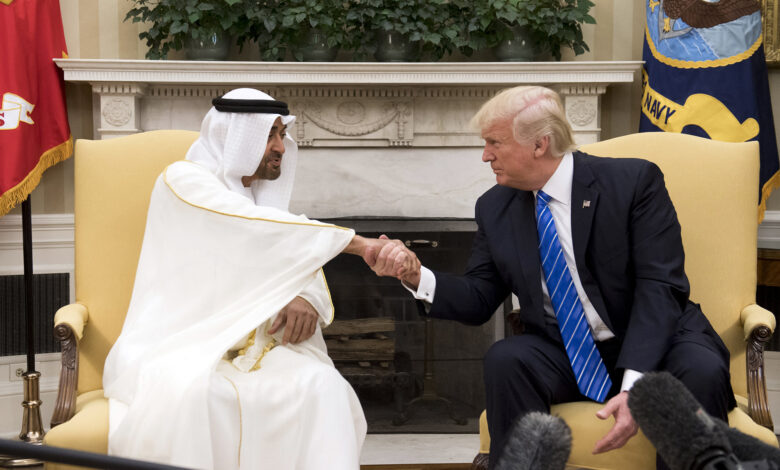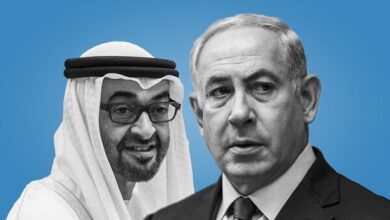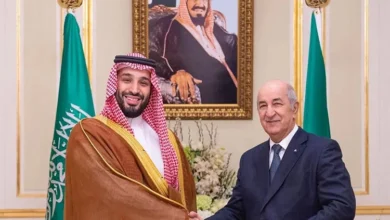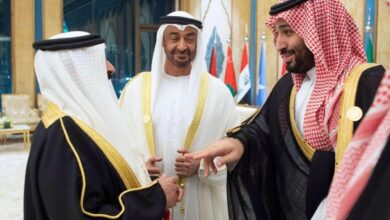How Abu Dhabi Uses Its Influence in the United States

Introduction
Although small in population and size, the United Arab Emirates has become a major actor in U.S. foreign policy circles. Its influence is broad, deep, and much subtler than traditional powerplay. Rather than direct military interventions, Abu Dhabi’s strength lies in lobbying, investment, narrative shaping, and relationship building.
- Think Tanks, Funding & the Quiet Lobby
Data from sources like the Think Tank Funding Tracker show that the UAE has donated tens of millions of dollars to U.S. think tanks — organizations that produce research, host policy workshops, and provide expert testimony to Congress.
Critics allege that funding correlates with muted criticism: issues such as human rights abuses, foreign military interventions, and controversial UAE policies (e.g. in Yemen or Sudan) receive less scrutiny in institutions heavily funded by Emirati sources.
- Investment Power & Economic Leverage
UAE’s sovereign wealth funds, especially Mubadala, hold hundreds of billions in assets. For example, Mubadala’s bid to acquire Fortress Investment Group (a major U.S. investment firm) for $3 billion was approved by national security regulators after concessions were made.
These large investments foster interdependence: U.S. policymakers know that harsh criticism risks broader economic or diplomatic fallout. Such investments help give Abu Dhabi more than just financial return — they provide direct access to U.S. economic elites and policymakers.
- The Role of Ambassador Yousef Al Otaiba
Ambassador Otaiba has been central to this operation. He has helped orchestrate UAE’s diplomacy, hired foreign lobbying/PR firms, and pushed UAE’s agenda in Washington. His influence within policy circles is significant, and he is often credited with making UAE a crucial interlocutor for U.S. administrations. - Controversial Wars, Reputation Management & Lobbying
When issues arise — humanitarian criticism, war crimes allegations, or international condemnations — the UAE employs PR campaigns, legal counsels, media strategies, and diplomatic pressure to soften or redirect criticism. The Yemen war is a repeated example where UAE’s role has been defended or reinterpreted in U.S. discourse thanks to strong lobbying ties. - The Cost to Democratic Accountability
While these methods can be legal (or within legal grey zones), their effect is to reduce transparency, limit critical scrutiny, and shrink the space for dissent. When think tanks or news outlets prefer moderate or pro-status-quo narratives, or avoid criticism, public debate becomes skewed.
Moreover, foreign funding often operates with limited disclosure. U.S. laws like the Foreign Agents Registration Act (FARA) are meant to regulate foreign influence, but many operations find loopholes or operate under soft forms of influence. Critics argue this erodes democratic oversight.
Conclusion
Abu Dhabi’s lobbying machine in Washington demonstrates how influence no longer depends solely on size or population — it depends on money, strategy, and networks. The UAE has fashioned itself into a foreign policy influencer by investing in think tanks, shaping media, building economic leverage, and cultivating powerful relationships.
While this isn’t always illegal, it raises serious questions about democratic accountability: who decides what foreign policy is acceptable, which abuses are highlighted, and which voices are heard.
Dark Box recommends:
- Stronger transparency laws around foreign funding of think tanks and media
- Greater public disclosure of UAE-linked lobbying contracts
Independent auditing of arms deals, investment deals, and their connections to policy outcomes




